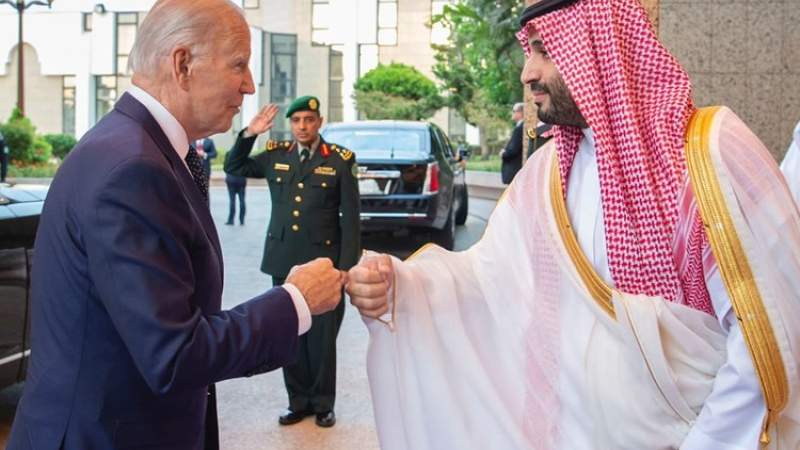The National Interest: Why Does Washington Still Support Saudi Arabia's War Against Yemen?

Yemen: Chad Kunkle wrote an article in the National Interest in which he said that during the past month, the "War Powers Resolution in Yemen" was withdrawn from voting in the US Senate, and that if the resolution had been approved, it would have ended the direct US military intervention in the Saudi war in Yemen.
According to the article, "This step came after President Joe Biden and his administration promised to veto the resolution if it passed, and urged other senators to vote against the bill." This is what the magazine considered "another major setback in efforts to end US involvement in a conflict that has resulted in one of the most devastating and least discussed humanitarian crises of our time."
This war has caused enormous suffering to the Yemeni people, as it has caused civilian casualties, diseases, internal displacement and famine in the population.
Ending US involvement in this conflict has garnered bipartisan support in Congress over the years despite many failed attempts to pass forms of the Yemen War Powers Resolution (YWPR). The move hit many roadblocks, such as a veto of legislation by President Donald Trump, but it also saw some recent successes, as Biden reversed some of the policies pursued by his predecessors, vowing to stop supporting offensive Saudi military operations and remove the Houthis from the terrorist designation list.
This decision also appears to be a dangerous reversal on the part of Biden and many key foreign policy officials. Senior Biden associates, such as US National Security Adviser Jake Sullivan, have signed letters to Trump (perhaps he means Biden) supporting past iterations of the "Yemen War Powers Resolution," and Biden's promise to make Saudi Arabia a pariah in his presidential campaign. The move to block the Yemen War Powers Resolution appears to be the latest example of a major shift in the administration's attitude toward the Saudis, which has garnered considerable attention since Biden's visit to the kingdom last July, which was marked by Biden's failure to secure increased oil production by the Saudis. And the rest of OPEC Plus.
He concluded that the war in Yemen has been a disaster, and the desperate and unnecessary attempts to prevent Saudi Arabia from pursuing alternative relations to America are no reason for the United States to continue aiding destruction by providing direct military assistance. The decision to seek to rein in that potential is worth the potential disruption of long-term policy, especially when that policy is not feasible to US interests and more beneficial alternatives exist.
It is noteworthy that, last October, Sanaa announced that the negotiations to extend the UN armistice in Yemen had reached a dead end, after Saudi Arabia refused to pay the salaries of public servants from the revenues of oil and gas produced from the Yemeni governorates, to stop the war and lift the blockade on the country.
It is noteworthy that Saudi Foreign Minister Faisal bin Farhan discussed the Yemeni file in Switzerland with the Special Envoy of the Secretary-General of the United Nations to Yemen, Hans Grundberg, and stated that the war in Yemen must end through negotiation.
#US_Saudi_Aggression About 1 year
-
12:19
Gaza Health Ministry: 5 massacres by the Israeli enemy in the past 24 hours claimed 51 lives and left 75 wounded
12:19
Death toll from US-Israeli genocide in Gaza rises to 34,356; more than 77,368 injured
12:17
Number of students detained in American universities has risen to 500 whom participating in protests condemning Zionist war on Gaza.
12:17
Speaker of the Civil Defense in Gaza: We recovered 392 bodies of martyrs so far from Nasser Hospital, only 165 of them identified.
08:50
Yemeni Armed Forces: Continue to block Israeli navigation in Red Sea, Arabian Sea, and Indian Ocean until aggression ends and Gaza blockade is lifted





